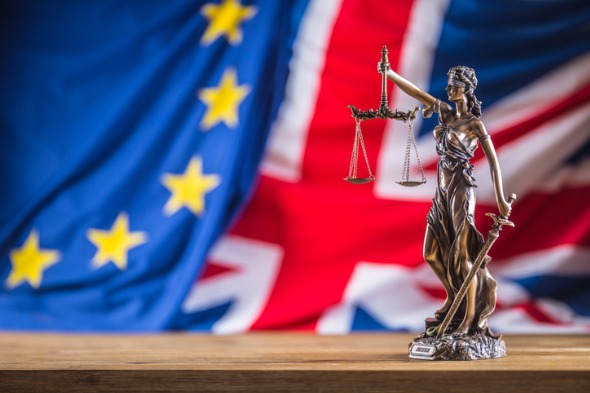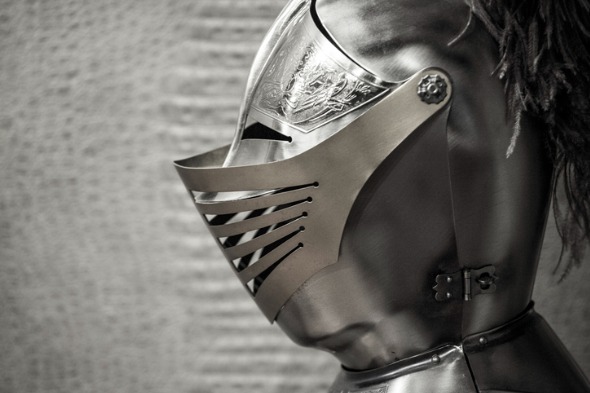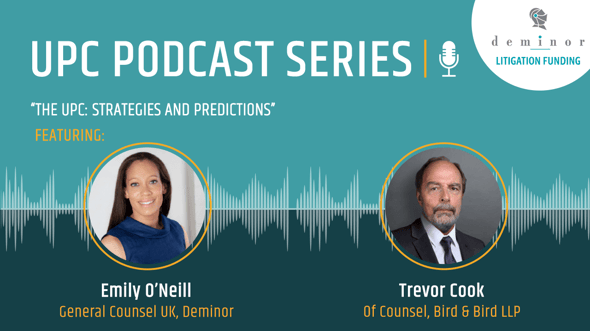In this podcast series, Emily O'Neill General Counsel UK and Global Intellectual Property lead for Deminor Litigation Funding, undertakes interviews with global professionals to understand the implications of the new Unified Patent Court (UPC).
Deminor welcomes you to join this conversation as we summarise the key elements of the conversations between Emily O'Neill and these experts, as captured in the podcast transcripts below.
What is the UPC?
The Unified Patent Court (UPC) is a new European court system designed to harmonise and simplify the patent dispute landscape in Europe.
The UPC was established in order to provide a unified patent enforcement system with jurisdiction over ratifying EU member states. Countries that are Member States of the European Patent Convention (EPC) but are not EU member states cannot join the Unitary Patent or Unified Patent Court. As a unified court with a multi-state jurisdiction, the UPC hopes to be faster, more efficient and more cost-effective in resolving patent disputes.
The UPC's structure is made up of a Court of First Instance that is divided into central, local and regional divisions. Its central divisions are located in Paris and Munich. The third seat of the central division was originally assigned to London. The Italian Foreign Office published a press release that an agreement has been reached with France and Germany to set up a branch of the Central Division in Milan. This agreement now needs to be approved by the other UPC contracting states during the next meeting of the Administrative Committee in June 2023. The press release states that the Milan court is in the process of being set up and will be operational within the next year. In the interim, the Presidium of the UPC decided, that initially, the Paris and Munich central division seats will share this caseload. Cases concerning human necessities are assigned to Paris and those involving chemistry and metallurgy to Munich for now.
The UPC’s Sunrise period launched on March 1st and allowed patentees to opt out of the exclusive jurisdiction of the new system to take effect from the court coming online on 1 June. Approximately 460,000 European patents and patent applications have been opted-out during Sunrise. Opt-outs are still possible now and at least during the 7-year transition period, unless proceedings are pending in the UPC, and will take effect once filed.
However, this is a new and untested forum, located in civil law jurisdictions but with elements of common law such as disclosure, cross-examination and adverse party costs. Notable jurisdictions such as the UK and Spain are not within the UPC - How will companies mitigate their commercial litigation risks in this environment?
Podcast Preface:
Deminor General Counsel UK, Emily O'Neill (EON), speaks with Trevor Cook, Of Counsel at Bird & Bird. Trevor provides his insight into the value of the upcoming Unified Patent Court (UPC) and the likely early litigants.
In this interview with Emily O’Neill, Trevor shares his thoughts as to how the UPC will position itself in the international patent litigation landscape and the role of the UK as a venue outside the UPC.
Podcast Transcript:
EON – What will influence opting into the UPC and what will be litigated in its early years?
TC - I think we start with the fact that the UPC is an unknown court, but we have rules of procedure, we know who the judges are, and a lot of those judges are well-known, very highly respected judges in their respective jurisdictions. The Rules of Procedure permit an awful lot of flexibility and an awful lot of different ways in which things could go, and we don't yet know how that's going to play out.
I think despite the quality of the judges, there will clearly be a certain reluctance on the part of most patentees to entrust their most valuable assets to the UPC until they have got a sense of how it's starting to work. Now, applying that thinking, how would you then distinguish between different types of patent assets? Let's do it by different types of patent assets first and then talk separately about the different types of industries.
In terms of different types of patent assets, you will have those people who have been granted European patents. They have no divisionals in prosecution, and they have no scope for gaining any further patents. So those patents are there. In some cases, they may be the only patent in a family of patents. In other cases, there may be several European patents in the family, and that's when I think we start getting into distinctions between different industries.
"I think life sciences companies are going to be a lot more conservative in their approach. I think we're going to see more opting out on the part of life sciences companies, and less on the part of tech companies." - TC
When you're looking at Pharma for example, in life sciences, you tend to have only one or relatively few patents in a family. When you're looking at tech you quite often have several European patents in a family. However, if you've only got one patent in the family, and it's protecting an important asset, it’s most unlikely that you are going to want to expose it to the UPC with the risk of all the designations of that patent being invalidated, the ‘all the eggs in one basket’ concern which one has with the UPC, at least in its initial stages. I think those sorts of patentees are going to be looking to opt-out.
Patentees with divisionals, or the prospect of divisionals, might be open for them to go for unitary patents anyway. And depending on the cost considerations, they might well want to do that. But I think those with old established patents where you have relatively few patents in the family, those people are going to be very reluctant to expose their patents to the UPC.
I think life sciences companies are going to be a lot more conservative in their approach. I think we're going to see more opting out on the part of life sciences companies, and less on the part of tech companies. Indeed, the very pressure for introducing an opt-out did come from life sciences companies in the first place.

EON – Will the UPC be seen as secondary to national courts as valuable IP remains litigated nationally?
TC - Well, it may be that the UPC does not get so many life sciences cases in the early stages, and that's particularly when you're talking about generic entry-type cases because those will be late in the life of a patent and there won't be any scope for divisionals.
"...there's probably a tendency, a natural human tendency, to probably want to show what it can do, and perhaps it will appear to be a little claimant friendly. But then again, you look at many other jurisdictions, and those seem quite claimant friendly at the end of the day... I think where we're really going to see action is on the tech side." - TC
However, I think it is an interesting forum for tech companies and I think we could see a lot of tech companies trying to take advantage of it. That said, they're doing well in the English courts and in the German courts.
I think inevitably, with a new court, there's probably a tendency, a natural human tendency, to probably want to show what it can do, and perhaps it will appear to be a little claimant friendly. But then again, you look at many other jurisdictions, and those seem quite claimant friendly at the end of the day. So, I don't think it will be relegated to second place at all. I think it's going to be extremely important. But I think where we're really going to see action is on the tech side.
EON – Do you think that the UPC could become Europe's Western District of Texas?
TC - The Western District of Texas, or the Eastern District of Texas as was previously the case, is traditionally the jurisdiction which attracted litigation. When you look at the figures overall, the success rate statistics, it's not out of sync with other jurisdictions. I think what attracted people to it was its procedures. It wanted to hear patent cases. So, I think those courts in the states which have attracted patent litigation, have done so because of the nature of their procedures. They've shown that they are not exactly patent friendly, but they are interested in hearing patent actions. Remember, in the Federal District Courts, you get all other sorts of proceedings out there, and there are judges in some jurisdictions who just do not want to hear patent actions.
"I think we might see quite a lot of revocation proceedings in the UPC, especially if it shows itself to have a balanced attitude towards patents, which I think it probably will, knowing the judges." - TC
Will the UPC compete with national courts in terms of who is the most claimant friendly? Who is most plaintiff-friendly? I don't know. There's a different dynamic at play as well between, for example, UPC and the US federal courts. One thing we don't talk about much in relation to the UPC versus the US federal courts is that the UPC will be a realistic revocation jurisdiction. You've got the chance of knocking a patent out when a patent hasn't been opted out of the system. Knocking a patent out for all the UPC jurisdictions, whereas an EPO opposition will knock it out for every designated state. You can knock it out for all the UPC jurisdictions in a single proceeding in the UPC, whereas it's very hard to bring declaratory proceedings in US courts, as long as the patentee has not been too free and easy with its threats of litigation.
I think we might see quite a lot of revocation proceedings in the UPC, especially if it shows itself to have a balanced attitude towards patents, which I think it probably will, knowing the judges. Think about litigation in the UK, with tech it may have changed a bit, but certainly, in life sciences, the vast majority of patent litigation in the UK litigation is initiated by potential defendants by people trying to knock the patent out or to establish they don't infringe. So I think we may see that jurisdiction developing more, and that would mitigate against it being a patentee-friendly jurisdiction, but obviously, it's a friendly jurisdiction towards patent litigation. It doesn't have anything else to do.
EON – How predictable do you think the outcomes of UPC proceedings will be?
TC - Well, I think that's the big question really. The rules of procedure were a mix of common law and civil law procedures. The Brits were involved, even though the Brits are no longer involved in the project, apart from Kevin Mooney. You've got a mix of common law and civil law thinking there. You've got different types of civil law thinking. You've got the possibility of a saisie type procedure, for example, which is well known to the French, the Belgians and the Italians. The Dutch have started to use it, but it's something which is completely alien to the Germans, for example.
So you've got different judges with their different national perspectives, and their national heritage. They've been attending judges’ conferences; they've been talking to other judges from Europe for many years now. So, they're familiar with all of these procedures, all of these different procedures, but which ones of them they're going to pick up and run with? It's very hard to say.
"That is one aspect of procedure where I will stick my neck out and say, I don't think we're going to see much if any bifurcation, and it's certainly pretty alien to most other European jurisdictions." - TC
I think the one thing which concerned people a lot about the original agreement and the rules, the risk of bifurcation between infringement and validity, is probably something which won't happen. I know that this is a big issue in German infringement procedures. That is because the German courts are forced constitutionally to bifurcate as the infringement courts, which are state-based courts, do not have jurisdiction over patents, which are federal rights.
Speaking over the years to various German judges, they don't particularly like the split system. I think they would be very happy to be freed from the split system and to deal with both infringement and validity in the same procedure. That is one aspect of procedure where I will stick my neck out and say, I don't think we're going to see much if any bifurcation, and it's certainly pretty alien to most other European jurisdictions.
As to other things, will German, judges despite having no background in saises or things like that, orders for inspection, or orders for disclosure documents even be phased by that? I've been told by German lawyers; you can get orders for discovery of documents in German procedures, but you never do. But the UPC allows it, so whether they will actually seize it and run with it? I just don't know. I don't think we will know until we've had the first few cases. Then it should settle down pretty quickly. We’ve got two strong Court of Appeal divisions in place who are meant to impose some sort of uniformity across the different divisions. So, I think we should see fairly soon how things are playing out in that respect.
EON - Thanks, Trevor. I think from my side, it's a little bit terrifying that you're going to have judges from lots of different jurisdictions, having a pick-and-mix approach to the different tools and toys that they can play with from other jurisdictions in the early days. Testing different aspects of the procedural rules is going to make it quite difficult to predict which way things are going to go. And not being able to use a track record, particularly for the German judges, if they depart from the National procedures is going to be an interesting prospect. Today, managing litigation risk is going to get tougher.

EON – How will the UPC respond to bifurcation of quantum given that there is a one-day hearing?
TC - I think the bifurcation of damages phase is optional. The court has enormous discretion to waive various provisions of the rules. The only reason why for example, in the United States, you do not bifurcate the liability phase and the damages phase is that you need to have the same jury adjudicating on both of them. And you can't get the same jury back several months or a couple of years down the road.
There's this constitutional requirement in the States for any infringement action which is over a certain value, has to have the possibility of being heard in front of a jury. So, any sensible system, unless it's forced by its constitution to do it that way, is going to bifurcate liability and damages. They're completely different issues, and completely different evidence is involved. All the money you spend on damages inquiries is a complete waste if there's no liability.
Speaking as an English lawyer, the cost of damages inquiries can often be higher than that of the liability side of the action. Because you're paying for all this accountancy evidence, and that does not come cheap.
EON – How do you think strategy will move forwards with the UK’s absence from the UPC?
TC - Well at present a lot of UK litigation on the life sciences side is litigation that is brought to revoke patents. One of the reasons why the UK is a favoured forum for that is that you don't need to establish any locus as you do in certain European national jurisdictions. And, you get a fully reasoned answer pretty quickly. You then have to hope, as somebody seeking to knock out the patents, that if you can trail that around various European jurisdictions, it will influence the judges in those jurisdictions. I think on the life sciences side, that will probably continue especially because it's likely that a lot of life sciences patents, at least late in their life will be opted out anyway, so the UPC just won't be an option for them.
I think until we've seen the nature of some of the judgments in the UPC, the very fully reasoned judgments of the English courts will continue to carry weight. It's interesting how over the years, you've seen that the German and Dutch courts, in particular, started to produce much more fully reasoned judgments to compete with the English court. I was once told by a French judge that it's not the done thing to show too much reasoning in French judgments because it's something that’s taught at judge school. This may be entirely apocryphal, but I must admit I've never found the reasoning in French judgments that helpful from that point of view. Perhaps freed from that, French judges will now be able to provide full reasoning.
Now, in tech, I don't think there has been so much of that trend. Indeed, in tech, it is normally the case, it's the patentees who bring proceedings, and not the people who are at risk of being sued. Certainly with the FRAND jurisdiction in the UK, and the idea of the FRAND injunction, there is every incentive for somebody seeking to enforce standard essential patents, to bring the proceedings in the UK. Again, those proceedings will get to trial pretty quickly.
"It will be some time to come before we start seeing UPC judgments waved in front of the English judges and being told that they should be following the same line." - TC
Perhaps the difference in time to trial is not so fast. The difference between the time to trial in the UK, and the time to trial in the UPC will not be as great as the difference between the time to trial in the UK and most European national jurisdictions. A distinct notable difference is that the Dutch are pretty fast, and the German infringement jurisdiction which is fast, but of course, the German revocation/nullity proceedings take a lot longer. So perhaps the UK benefits in terms of speed to trial, but speed to getting a decision will be less important than it used to be.
Still, the UK and Spain will be two major national markets, which are outside the UPC. I don't know if you've had the experience of litigating in Spain, but the procedure there is very front-loaded. You have to put all your evidence in at the outset, and there's very little scope to add anything along the way. So, it's a bit scary from that point of view. But I think the UK, as I say, is still a major market. From that point of view alone, you'll probably want to include that in your strategy.
It will be some time to come before we start seeing UPC judgments waved in front of the English judges being told that they should be following the same line. Of course, we are all applying pretty much the same substantive law. And, you will be seeing the first judgment on any sort of European patent in any forum that will be shown to the other judges, but I think that already happens. The judges feel the need to explain if they are differing from their colleagues in other jurisdictions, why they are doing so. But certainly, they don't blindly follow each other's decisions, that has to be said.

"From the point of view of the UK. We did apply when we left the EU to join the Lugano Convention, but the Commission put a kibosh on that. They said it wasn't a good idea. So, the UK is a third country in every respect. I don't see any scope for the UPC to have long-arm jurisdiction over the UK, or at least not in any enforceable sense." - TC
EON – How does the long-arm mechanism of the UPC work?
TC – The long-arm jurisdiction of the UPC that people refer to reflects the fact that it's effectively a party to the Brussels I Regulation. Although it doesn't have jurisdiction over validity questions in relation to patents outside the UPC member states, it does potentially have infringement jurisdiction over patents elsewhere in the EU, via the Brussels I Regulation, and arguably elsewhere in the EEA and Switzerland by virtue of the Lugano Convention. Although the Lugano convention hasn't been amended in the same way as the Brussels I Regulation.
The other aspect of the long-arm jurisdiction is that you can effectively enforce a judgment of the UPC as of right in the rest of the EU, and arguably the EEA and Switzerland by virtue of the Brussels I Regulation in the first case, and the Lugano Convention in the second case.
From the point of view of the UK. We did apply when we left the EU to join the Lugano Convention, but the Commission put a kibosh on that. They said it wasn't a good idea. So, the UK is a third country in every respect. I don't see any scope for the UPC to have long-arm jurisdiction over the UK, or at least not in any enforceable sense.
When the Dutch courts were developing the Pan-European injunction, it's sometimes forgotten that they had also granted injunctions over infringement in South America or things like that. They didn't feel troubled in any way despite the difficulty of enforcing these things. So, I wouldn't exclude the possibility of a court purporting to make an order, which extended to the UK. But I don't see any way of enforcing it apart from having to go through all the palaver in the UK and effectively running an infringement case, again, to show that the order was rightly made.

"If you've not validated in the country, then it's irrelevant that it's part of the UPC, and you don't get damages in relation to that country. I think that also, that decision about where you validate, it also reflects a judgment about the economics, that in many of these smaller jurisdictions, it just isn't worth a candle." - TC
EON – Will the new court lead to increases in NPE litigation? Or will the cost-shifting regime discourage less attractive cases?
TC – I think NPE (non-practising entity) litigation tends to be in the tech area, and it also tends to involve patents which have not been validated in that many countries. If you look at patents in the telecoms area, it used to be the case that people would only validate in the biggest markets. If you've not validated in the country, then it's irrelevant that it's part of the UPC, and you don't get damages in relation to that country. I think that also, that decision about where you validate, it also reflects a judgment about the economics, that in many of these smaller jurisdictions, it just isn't worth a candle.
If you look at those jurisdictions, individually, in many areas of technology, the one area where you do see widespread validation in just about every single jurisdiction, is Pharma. And that they will fight everything, in every jurisdiction, it's well worth it, if you're fighting against the generic entrant, it makes this worthwhile. But in other areas, it's not. And so, there is only a certain limited market out there, which you can assert your patents in respect of because you've only validated them in certain countries.
Now, you might say an NPE wouldn't want to be suing in every jurisdiction, so it would make sense for it to sue in the UPC. I think balancing that, for example, against the attractions of suing on SEPs in the UK. But of course, there are many other patents, implementation patents, which NPEs will hold. And the UPC may have attractions for them from that point of view, and they may have the potential of getting damages in relation to every jurisdiction in which the patent has been validated. That may have been something they might not have chosen to do in terms of litigation.
"Where I think you might see things changing is if you're looking at all of Europe, and the potential of being able to sue in relation to a market which is as big, if not bigger, than the United States. The attractions of unitary patents start to factor in quite a lot. I suspect that those NPEs with divisionals still open to being prosecuted will certainly be exploring that sort of avenue." - TC
What the NPEs really want to do is make a settlement. They would be factoring in, even if they'd only proceeded in one jurisdiction, the potential damages in other jurisdictions, unless the person on the receiving end started revocation proceedings or non-infringement proceedings in those jurisdictions. I suspect at least initially, it's not going to be so much more attractive for NPEs from that point of view.
Where I think you might see things changing is if you're looking at all of Europe, and the potential of being able to sue in relation to a market which is as big, if not bigger, than the United States. The attractions of unitary patents start to factor in quite a lot. I suspect that those NPEs with divisionals still open to being prosecuted will certainly be exploring that avenue. Monetizing those jurisdictions which have never previously been monetized because patents weren't validated in relation to those jurisdictions will become a reality.

EON – With the UPC being a slightly more expensive forum, what options are available to claimants in funding their litigation?
TC – As an English litigator, it's been so long since I had anything to do with legal aid, which used to be available in the UK for IP cases. I was fascinated to see it in the UPC agreement, and a bit of flesh was put on the bones in the UPC rules. I think its inclusion in the agreement probably reflects some underlying consideration under the European Convention of Human Rights as to access to justice. Reflecting that, my reading of the rules is that legal aid is available, but only to natural persons, not to companies.
The entire discussion in the rules is very much keyed to family circumstances, and what the other members of your family, you know, their income, their assets… and so, when you look at the rules, it says ‘in order to ensure effective access to judge justice, the court may grant legal aid’. And it's pretty vague about the various parameters which are applied. It can't be more than the permitted costs through recovery. But depending on the amount in issue, that could be quite a lot. But it requires you to be able to show as an applicant that owing to your economic situation, you're wholly, or partly, unable to meet the costs. I think if we just don't know how that is going to be applied in practice… we have no particular criteria, which are applied, the number of factors the registrar can take into account, and there's no appeal procedure. So we just don't know how that's going to work.
One has to recall, that the UPC, is meant to be self-funding after its initial setup period. We don't really have any transparency as to how they fixed the fee structure, given the need to pay for all the judges, all the IT, and everything else. If for example, all you get is revocation proceedings, and no infringement proceedings, they just won't be able to pay for it eventually. Obviously, there's priming money that goes in at the start, but I have to imagine that they are not going to be very free and easy with the grant of legal aid.
In terms of the costs, the fees are potentially very high, they can go up to over 300,000, and the permitted cost recovery, for very big claims, can be up to 2 million. I think the other point I might make about the fees is that there is a reduction to 60% of the fees for SMEs. And so that should be borne in mind as well. I don't quite know how litigation funding factors into that calculation, but there again, as with everything else, the court has an enormous discretion to do all sorts of things and to waive the fees and to order repayment of fees it thinks should have been paid.
EON – Do you think we're going to see more patent attorney advocates in the UPC? Or do you think it will be structured in a German way where you have a litigator and a technical person supporting them?
TC – I think there's probably a lot to be said for having advocates with both sets of skills.
Certainly, I've always thought that the people who would probably do very well in the UPC system would be the Dutch advocates because they're very good all-rounders.
I think because of the split system in Germany, the number of German litigators who also have a technical background is very small. Now a number of litigators have a very good grasp so would be well able to argue these points. But one should also remember that in German proceedings, for example, when you're arguing for a stay or something like that, it's often the patent attorney who will be making the argument.
I think in terms of all-rounders, we should be looking at probably the Dutch more so. It could level the playing field, as traditionally, Germany has had so much of the lion's share of European patent litigation. This provides enormous opportunities for advocates from across Europe.
As to patent attorneys, and certainly UK patent attorneys who have rights of audience in the UPC, I think we don't recognize how successful the UK patent profession has actually been. Since the establishment of the EPC, UK patent attorneys have had a large share of the patent attorney profession in Europe. UK patent attorneys have the respect and the market share in relation to highly contentious opposition proceedings. I've been in opposition proceedings in Munich, where you have a corridor of opposition proceedings, and there was a Brit arguing every single case. Virtually all patent attorneys, obviously, but it shows you quite what the skills that UK patent attorneys have.
And so, I think the only problem they have is probably just resources, are there enough of them? They've got so much other work to be doing… are they going to want to take this on as well? I think some firms have clearly shown they do want to. Some firms have for a number of years taken on solicitors and will actually litigate perfectly happily in the English courts, using those solicitors. I think a number of them would love the opportunity and very much relish the opportunity and be excellent advocates in this sort of proceeding.
Remember this sort of proceeding places no premium on cross-examination. For example, because you can have live evidence from experts, how the courts deal with the expert evidence is going to be very interesting. The rules do not envisage direct cross-examination. The rules envisage that it's going to be the court that is going to cross-examine the experts, for example. So I don't see any reason why a UK-based European patent attorney wouldn't be able to argue these things. And the only other patent attorney profession in Europe, which is the German profession is much bigger. But there again, I think that their relationship with the lawyers means that they haven't necessarily had the experience of dealing with the infringement aspects so much. So, I think it could be very interesting to see how that plays out.
EON – What is your overall opinion of the UPC coming to fruition?
TC – The UPC is an extraordinarily exciting development in Europe. It's the biggest development in patent litigation in Europe since the EPC, back in the 1970s. It's certainly going to shake up patent litigation in Europe in a major way. And it's going to be fascinating to see how it all works out. It's something very exciting to watch.

UPC Podcast Series - Next steps and further information:
Thanks for joining Deminor's UPC Podcast Series as we deep dive into the ins and outs of the new Unified Patent Court.
Keep a look out for our upcoming interviews as Deminor General Counsel UK and Global Intellectual Property lead, Emily O'Neil, speaks with several more experts to get their insights on the UPC.
If you would like to connect with either Emily or Trevor Cook on LinkedIn, please click on the links below:
Deminor, General Counsel UK and Global IP lead - Emily O'Neill
Bird & Bird, Of Counsel - Trevor Cook
***
Further Reading:
- https://www.deminor.com/en/case-studies/co-funder-proposes-sharing-of-litigation-funding-risk-to-leverage-deminors-in-house-due-diligence-capability
- https://www.deminor.com/en/case-studies/financing-assertion-of-patents-protecting-manufacturing-processes
- https://www.deminor.com/en/case-studies/telecoms-patent-assertion-multi-jurisdictional-campaigns
- https://www.deminor.com/en/case-studies/canadian-innovative-start-up-preparing-for-a-david-v-goliath-litigation-funding-battle
- https://www.deminor.com/en/case-studies/whats-the-risk-assessing-the-risk-of-counter-assertion-by-the-defendant-in-patent-litigation
- https://www.deminor.com/en/case-studies/overstepping-the-mark-litigation-funding-trade-mark-infringement
- https://www.deminor.com/en/case-studies/lights-camera-action-recovering-damages-for-infringement-of-rights-in-a-short-film
- https://www.deminor.com/en/case-studies/recovering-damages-for-stolen-software-through-litigation-funding
- https://www.deminor.com/en/case-studies/funding-in-the-pharma-sector-/-investing-in-a-case-where-litigation-is-already-ongoing






